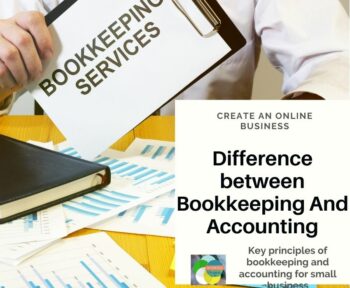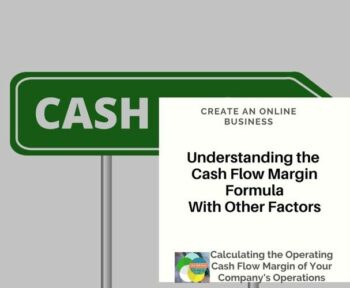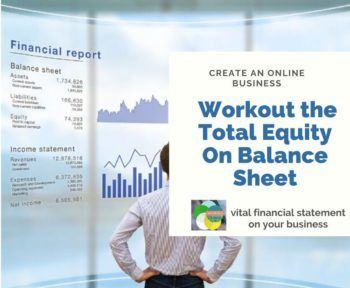For understanding the key principles of bookkeeping and accounting for small businesses you need to know bookkeeping vs accounting. Let’s have a look at bookkeeping vs accounting. Bookkeeping is the process of the day-to-day record-keeping of all a company’s economic associates.
While accounting is also known as the language of business; it is the process of calculating, handling, and communicating financial information. Additionally, availing the statistics about the company’s capital and finance.
What is Bookkeeping?
So let’s understand the bookkeeping definition. Bookkeeping is the regular record keeping of all company’s financial connections. If you are a bookkeeper, you should record in a general ledger the sales, expenditures, cash, and bank transactions of the business.

When you start a business you should develop the habit of recording transactions in your general ledger. Therefore, ledger and its accurateness are significant to your company’s assets. Recording transactions is denoted as posting. A bookkeeper may also create bills or whole payroll. However, the difficulty of the manual bookkeeping practice hangs on the extent of your business and the sum of transactions that takes place. And these transactions can take place daily, weekly, monthly, etc.
Therefore, having clean financial records should be followed by all but the smallest businesses to make available ample financial data.
1. Cash:
There are often two parts of the Cash ledger; Cash Receipts and Cash Payments. And these are used to complete the Cash Budget.
2. Accounts Receivable:
If your company permits credit accounts, then it has accounts receivable. So this data is used to make invoices and direct bills to your credit clients.
3. Inventory:
If instead of bookkeeping services you sell products, you should have inventory that you must track.
4. Accounts Payable:
If you purchase objects for your business such as office goods and you use credit, you will have Accounts Payable. This account is also known as trade credit. And it is what you have a loan from your suppliers.
5. Loans Payable:
If you have borrowed money to have more purchases, you must be able to track your payments and due dates.
6. Sales:
You should be able to track your transactions, whether cash or credit.
7. Payroll Expenses:
You must have data on the rate giving your employees.
8. Purchases:
This encloses finished raw material or goods. It is used in the Cash Budget and in computing the company’s cost of things sold on the income account.
9. Owner’s Draw:
This is the sum of the small business owner’s revenues from the company.
Bookkeeping Methods
Two methods that you can use for bookkeeping are single-entry and double-entry. Interestingly, most companies use the double-entry accounting or bookkeeping methods. And each record to an account needs a parallel and contrary access to a different account.
For example
A $20 cash sale would need posting two entries. That is a $20 credit entry to an account called “Revenue” and a debit entry of $20 to an account called “Cash.”
Key Attributes of a Good Bookkeeper
The key qualities of a worthy bookkeeper are being a strict for completeness and accuracy. Even the bookkeeper can make errors. But a bookkeeper usually works beneath the path of an accountant if the business is very small. According to some studies an external accountant is best. For a small business, manual bookkeeping might be much like keeping a checkbook.
What Does a Bookkeeper Do?
Bookkeepers make bank deposits by gathering data from cashiers, validating receipts, and directing cash, checks, or other methods of payment to the bank. They also grip payroll, mark purchases, formulate invoices, and keep track of overdue accounts.
Responsibilities of bookkeepers
- Bookkeepers are accountable for providing up-to-date and precise financial data about a business. Thus they always act as the pulse of a business. Hopefully, bookkeeping vs accounting is getting clearer and simpler.
- Their reports mostly go to business holders and managers to help them make results. And some bookkeepers involve themselves in stratagem development.
- Bookkeepers may also stake some jobs with accountants, such as tax returns and the planning of annual financial reports.
What Is Accounting?
Accounting is the analysis of information that bookkeepers arrange to create statements, reports, and financial metrics that offer an understanding of the company’s processes.

Some basic book-keeping accomplishments include:
- Planning of financial reports for the company.
- Examination of costs of operation.
- Performance metrics calculation.
- The accomplishment of tax returns.
- Controlling the business possessor in creating well-versed financial judgments.
Why Is Accounting Important?
Financial reports, performance metrics, and reports from accounting give the business possessor a well understanding of the business’s real profits and cash flow. Business owners rely on accountants for more than reporting numbers. They also depend on their accountant’s professional advice for financial calculating to help create critical business decisions.
Difference between Bookkeeping and Accounting
Most people are unaware of the difference between Bookkeeping and Accounting. Here, I will make you clear about bookkeeping vs accounting, so don’t skip it.
Bookkeeping involves the recording of data and financial information while accounting includes evaluating, classifying, and understanding this data.
Accountant needs more formal education and training than bookkeepers, because of accounting’s complex nature and analytical.
Bookkeeping samples
Let’s take a sample or an example of report bookkeeping. In the report, bookkeeping bookkeepers have to make a profit and loss report at the end of each month. And that is good for showing the business owner the company’s performance. Hence the owner can understand if he made a loss or a profit in the business.
Let understand the manual bookkeeping example with only two contacts for the whole month. You need to look at the ledgers to get the records for the report. So, income each time goes first on the report, so a sales ledger total of let suppose $100 goes first on the report.
Then next is expenses and so the $25.00 on the Purchases ledger is entered onto the report. And you measure net profit by subtracting expenses from income. As such, in this example, it comes to $75.00.
Basics of Bookkeeping for Small Business
The basics of bookkeeping include:
Understand Business Accounts
In the world of bookkeeping, an account is a record of all financial transactions, like sales or payroll.
Set Up Your Business Accounts
You need to know the accounts you need to track for your business and then setting them. And the bookkeeper daily records charts of accounts in a book called the general ledger. Now for accounts records most businesses use different computer software. It can be a virtual record and the whole file is still called the general ledger.
Decide On A Bookkeeping Method
Two methods of recording data are already discussed. Therefore, you need to choose either single-entry bookkeeping or double-entry bookkeeping.
You enter each transaction only once with single-entry bookkeeping and this method is only for small businesses. The double-entry accounting or double-entry bookkeeping, any transaction in one account needs the same entry in another account.
Record Every Financial Transaction
You need to record what’s happening with your money.
Balance The Books
In this, you need to balance and close the books. When you record account debits and credits then the totals should match. In other words, your book should be “balanced.”
Prepare Financial Reports
After balancing you need to take a closer look at what those books mean. Summarize the money flow in each account and creates a picture of your business’s financial health. And it can help you to make decisions about the future of your business.
Stick To A Schedule
Record all financial transactions at least once a week or a month, containing income invoices, sales, purchases, and bill payments. Balance and close your books regularly.
Store Records Securely
A proper record for businesses makes the procedure stress-free and keeps you obedient to the law.
Don’t Do It Alone
Don’t do it alone because bookkeeping can be a challenging task. So consider getting help either by hiring a bookkeeper or using accounting software.
Professional Bookkeeping
For professional bookkeeping, you need to use modern business software and skills. In this way, you can increase efficiencies and provide a robust bookkeeping service. Professional bookkeeper knows how to leverage accounting software and other types of business software. And that can rationalize things like payments, invoicing, and payroll. In this way, you can bring the company from zero to hero.
Difference Between A Bookkeeper And An Accountant
Most people don’t know the difference between a bookkeeper and an accountant, let’s understand it in a simple way.
Accountant
An accountant keeps the financials for a company by recording, summarizing, examining, accessing, and reporting.
Bookkeeper
On the other hand, the Bookkeeper is the record-keeper; he has all financial records of a business. And that may include the daily transactions that you record and store in a file. They don’t need a license but can choose to get a certification.
Learn Principles Of Bookkeeping
The primary principle of bookkeeping is to record daily financial transactions and information. Let’s learn other principles of bookkeeping.
Revenue Principle
It defines a time when bookkeepers record the transaction as ‘revenue’. According to the revenue principle, revenue happens at the time when the buyer takes legal control of the item sold. And this infers that revenue is not essential at the time when cash for the transaction is recognized by the seller.
Expense Principle
This principle defines a point at which the bookkeeper logs a transaction as an outflow in the books. According to this principle, the expenses arise when you receive goods or when you do the bookkeeping service, irrespective of when the business pays for the transaction.
Matching Principle
This principle advocates that when you record revenue, at the same time you must record all associated expenses. Thus, you charge account to the cost of goods flogged that you record revenue from the sale of those account items.
Cost Principle
The cost principle states that you must record the past cost of an item in the books, not the resell cost.
Objectivity Principle
The objectivity principle states that you have to use only verifiable and genuine data in the books, not a subjective measurement. The verifiable data must be of good use even if the subjective data appears better than the verifiable data.
Final Words
In this article, I have clearly illustrated bookkeeping vs accounting, accouter vs bookkeeper, bookkeeping basics, bookkeeping samples, and much more. You can go through it and have a better understanding of accounting and bookkeeping issues.
You might be failing to distinguish between bookkeeping and accounting, but the above text simplifies things for you. Bookkeeping and accounting are related but different.









